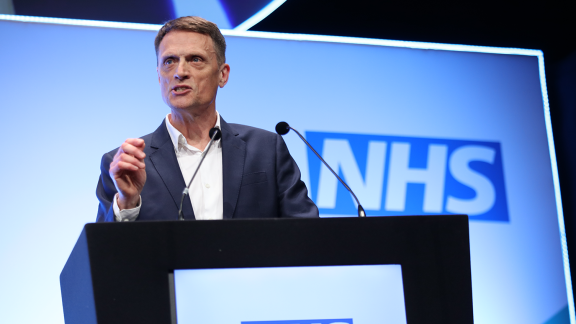Incoming Labour government have opportunity to transform the NHS

The incoming Labour government and health secretary Wes Streeting have the opportunity to transform the NHS and improve the health of the nation, says the NHS Confederation.
In a message to the new government, NHS leaders say they will work positively with ministers and welcome their mission-based approach to placing the NHS on a more sustainable footing.
With many of the challenges facing the NHS not amenable to quick fixes, the path to once again meeting waiting time and other targets and improving health and wellbeing will be long while the government will also need to address some immediate problems.
At the top of the list for the Secretary of State should be the task of bringing an end to the long running industrial disputes that have resulted in nearly 1.5 million cancelled operations and appointments, at a cost to the NHS in England of around £3bn. It is encouraging that a call between Secretary of State and the BMA has taken place on the first day of the new government, with a commitment to formally begin negotiations next week. Health leaders will welcome this as without this first step, the task of reducing waiting lists and improving productivity will be stymied.
The new government will also need to act to head off GPs taking “collective action” over contract changes. This could make it harder for patients to get GP appointments and risks them turning to A&E when it is clear investing in primary and community care leads to lower demand in hospital and emergency care. While the NHS Confederation recognises there is much to welcome in this year’s GP contract, the 1.9% pay uplift falls short of what is needed for a sector that is seeing record demand.
Health leaders have told the NHS Confederation that they are already having to make “drastic” choices to make ends meet amid highly ambitious productivity and financial targets, so they need the new government to plug the funding gap across the NHS which is estimated to be around £3 billion. This figure could grow if the NHS pay review body recommendations lead to pay rises that are not fully funded, and if strike action continues for months.
Matthew Taylor, chief executive of the NHS Confederation, said the organisation looked forward to working with the Prime Minister and his team, who will need to focus on the short-term task of stabilising the system, while working over the long term to transform local services.
He added: “A new government with such a clear mandate is an opportunity to transform the NHS for the better and build the health of the nation. We look forward to working with the government and welcome their mission-based approach to the NHS.
“Ministers know they are inheriting a bulging in-tray. There is funding crisis engulfing the NHS and resolving pay disputes with junior doctors and GPs must be an urgent priority. Otherwise, the clear risk is that the task of tackling lengthy waiting lists and restoring performance in other areas will be held back.
“But we must be under no illusions that these are the only things that need done – the road to recovery is going to be very long following a decade of underinvestment in the health service.
“Our members are hopeful the new government can support the NHS to turn a corner following austerity, the pandemic, industrial action and other recovery challenges. We are all encouraged by the pledges set out by the government before it took office, but now those pledges need to be backed up by action.”
The NHS Confederation is the only membership body that represents all parts of the healthcare system in England, Wales and Northern Ireland. In England, that includes NHS trusts, integrated care systems and primary care providers. Based on extensive engagement with its members, the Confederation identified the five critical factors that are needed to secure the future of the service:
- Put the NHS on a more sustainable footing, with no top-down structural reform in England for the next parliament, and to commit to a short-term stabilisation plan during the first 12 months of a new parliament to help get performance in the English NHS back on track.
- Increase NHS capital spending and reform how the capital regime operates. Specifically in England, capital funding needs to increase to at least £14.1 billion annually, a £6.4 billion increase from the current level of £7.7 billion.
- Commit to fund and deliver the NHS Long Term Workforce Plan for England, alongside an equivalent plan for social care.
- Provide more care closer to home by enabling local health systems to proportionately increase investment into primary care and community-based services, mental health and social care.
- Deliver a strategy for national health, given that most policy that impacts people’s health is made outside the NHS. As part of this, the Prime Minister should lead a cross-government national mission for health improvement to shift the focus from treating illness to promoting health and wellbeing, reducing inequalities and tackling the wider determinants of health, and supporting the public to be active partners in their own health.
About us
We are the membership organisation that brings together, supports and speaks for the whole healthcare system in England, Wales and Northern Ireland. The members we represent employ 1.5 million staff, care for more than 1 million patients a day and control £150 billion of public expenditure. We promote collaboration and partnership working as the key to improving population health, delivering high-quality care and reducing health inequalities.



